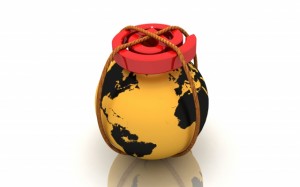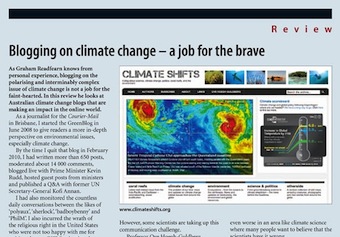 WE’VE now had four major reviews into climate change science, all of them prompted and demanded by deniers, sceptics, [insert appellation of choice here] or whatever other descriptor you choose.
WE’VE now had four major reviews into climate change science, all of them prompted and demanded by deniers, sceptics, [insert appellation of choice here] or whatever other descriptor you choose.
Most of the grist for this mill came from the illegal hacking of emails and data from the University of East Anglia’s Climate Research Unit, but other bits of raw material came via accusations of the methods of the IPCC.
According to the cacophony from some media commentators, climate scientists had tricked the global public, manipulated data, conspired to ban sceptics from peer-reviewed journals, killed Bambie, drowned one of the Care Bears and plotted to take over the world.
All four of the reviews have found the main thrust of the accusations to be without substance or, in other words, plain wrong.
Before a single review had made its conclusion, some commentators screamed it was the greatest science scandal of the modern age and proved that human-caused climate change was a conspiracy made-up to scare people witless.
At the time, I claimed the scandal was the greatest since Darren from Year Seven torched the Year Nine science project with a bunsen burner.
After two independent reviews, a UK parliamentary inquiry and a Dutch government agency review, I think it’s fair to say my analysis was the closest. I’d like to call Darren, but we’re no longer in touch.
 CHEERS go to bloggers Tim Lambert at
CHEERS go to bloggers Tim Lambert at  LATE last year there was an
LATE last year there was an